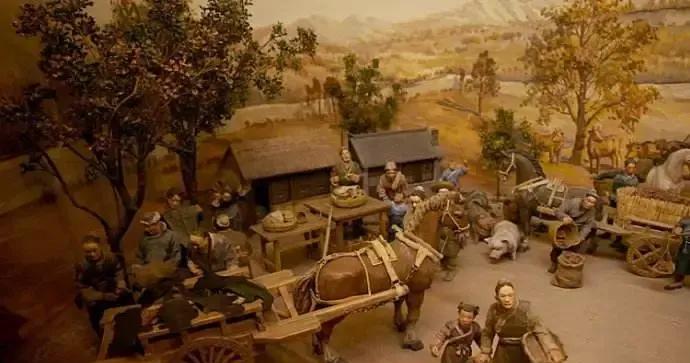【Qing History Series-15】
In June of the first year of Tiancong (1627), after the defeat at the Battle of Ningjin, Emperor Taiji was humiliated, and he led his army back to Shenyang in frustration. It seems that in a short period of time, it is not enough to establish one's prestige by fighting wars, and we must find another way to win the hearts and minds of the people. In the past, the evaluation of the emperor was generally to look at his Wenzhi martial arts, and since the martial arts could not be achieved for the time being, he could only work the Wenzhi, hoping to win the reputation of the people with diligence and love for the people.
In order to win the support of the Chinese people, the simplest and most effective way is of course to do a good job in production, develop the economy, and improve the treatment and living standards of the people. Unfortunately, the opposite happened, the disaster was not alone, just this year later, there was a great famine in Jinguo, the price soared, and the people could not even eat. Many people had no food and clothing, and in order to survive, they had to take risks, and thieves swarmed in the later Jin Dynasty, and public security deteriorated.

After the Jin people
In the face of a sudden test, Huang Taiji was not in danger, and he understood that this was also a perfect opportunity to show his ability to govern the country, so he did two things. The first thing is to take out a large amount of silver from the national treasury to help the victims of the disaster, so as to stabilize the people's hearts;
The second thing is that he did not blindly crack down on the thieves everywhere, but punished them slightly, and let them go with a whip, because he knew that most of these people were forced to become thieves because they could not eat, and it was forgivable. "It is the age, the great famine, the bucket of rice is worth silver eight two, the silver is expensive, and the thieves are prosperous." ShangTiran said, "The people are hungry and thieves, but they can kill them!" "Let the whip be released, and still send the people to the relief." (Draft History of the Qing Dynasty, Emperor Taizong Benji)
The two things that Huang Taiji did not only led the Houjin people through the difficulties, but also won a good reputation of leniency and love for the people, and the means were quite clever. In addition, he is also very concerned about the marriage of older young people in China, mainly the problem of leftover men. There were leftover men in all dynasties, and at that time, there were also many elderly young men in the Later Jin Dynasty who could not get the bride price and marry their wives because their families were poor.
Huang Taiji stills (right)
Huang Taiji asked the household officials to count these elderly young men who had difficulty marrying their wives, and then sent each of them a sum of money to go home and marry their wives. "Pengzi, give the people of the country money without a wife, and make them marry."
In fact, giving money to people in China who can't marry wives is not the first initiative of Emperor Taiji, and his father Nurhaci also engaged in this kind of welfare during his reign. The reason why Jin Dahan did this two generations later was mainly to encourage people to breed the population, have many births early, and maintain population growth.
The later Jin regime implemented the principle of all soldiers, as long as it is a male of the right age, they must fight as soldiers, so the number of people directly determines the number of troops. The population base of the Later Jin Dynasty was very small, and the population of the whole country during the reign of Emperor Taiji was no more than 300,000 people at most, and it may have been even less during the Nurhaci period. In addition to women and children, the old, the weak, the sick and the disabled, the estimated number of people who can really go to the battlefield is only 50,000 or 60,000, and basically all the family funds must be brought with them every time they fight.
Post-Gold Soldier
In this case, population is an extremely important strategic resource for the post-Jin regime, and the number of people directly affects its comprehensive national strength and the combat effectiveness of its army.
Therefore, in order to maintain military superiority over the Ming Dynasty and prepare for the future march into Guannei, there was a social welfare that encouraged childbearing and even paid money to the poor to marry wives.